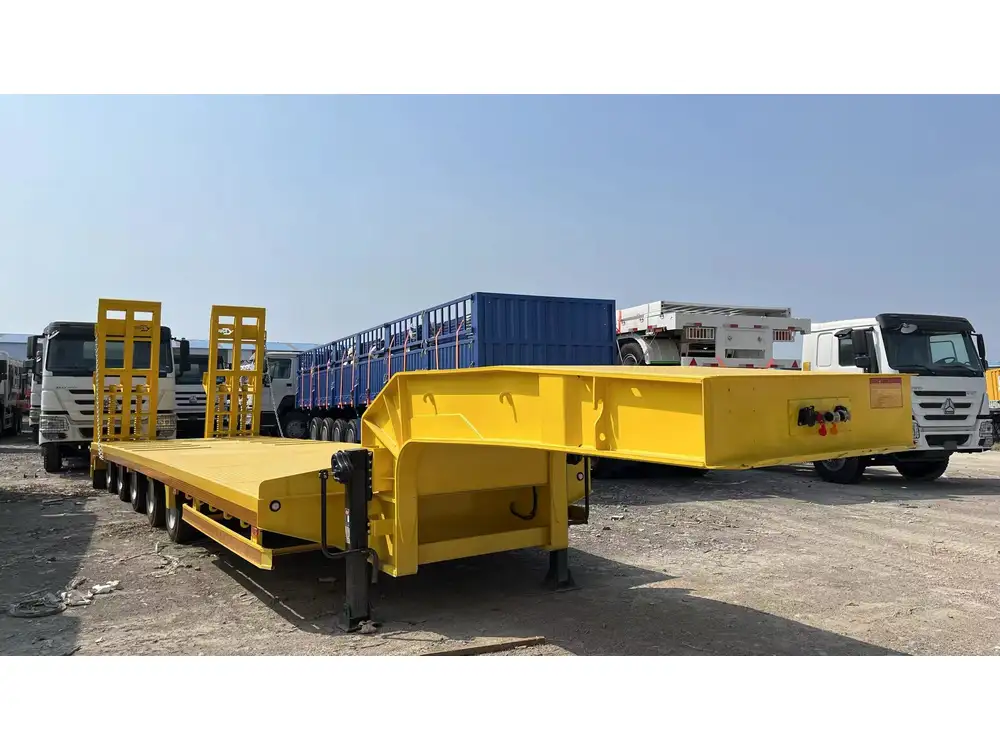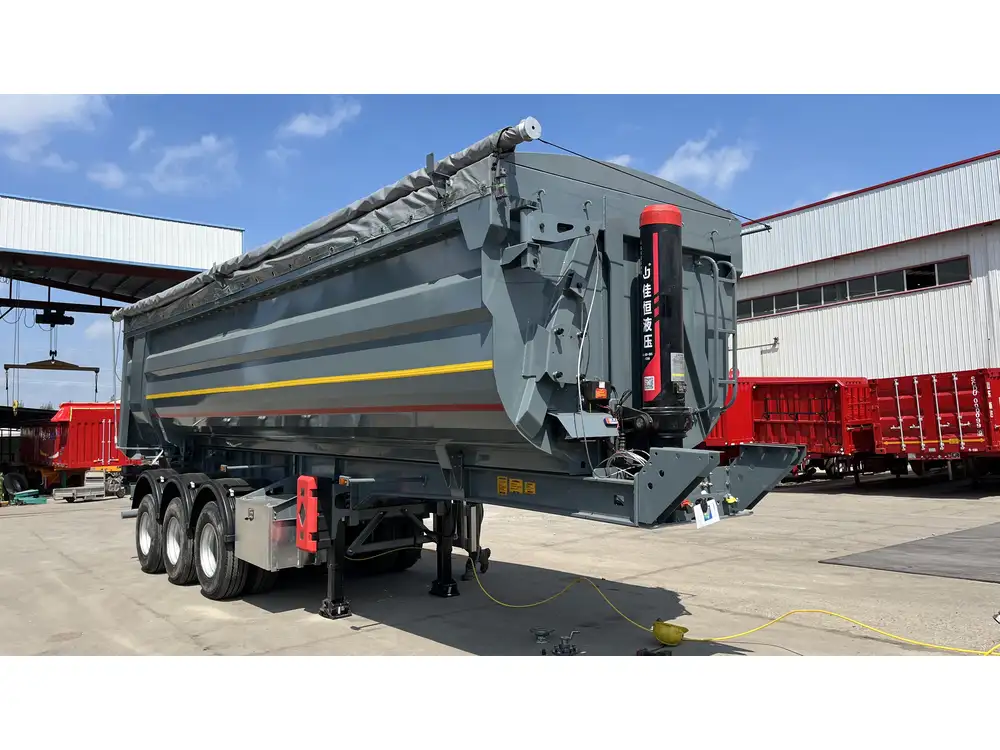Navigating the complex landscape of commercial driving regulations can be bewildering, especially when considering the requirement of a Commercial Driver’s License (CDL) for operating specific vehicles like dump trailers. In this detailed guide, we will dissect the various factors involved in determining whether you need a CDL to drive a dump trailer. We will explore licensing requirements, vehicle classifications, and state-specific regulations, helping to clarify the vital questions that may arise for both operators and businesses alike.
Understanding the CDL Requirement: What Is a CDL?
A Commercial Driver’s License (CDL) is a specialized license required in the United States for operating certain types of commercial vehicles. There are three classes of CDLs:
- Class A: Required for vehicles with a gross combination weight rating (GCWR) of 26,001 pounds or more, where the towed vehicle exceeds 10,000 pounds.
- Class B: Necessary for vehicles with a gross vehicle weight rating (GVWR) of 26,001 pounds or more, not requiring a trailer over 10,000 pounds.
- Class C: Required for vehicles designed to transport 16 or more passengers (including the driver) or hazardous materials.
CDL Classes and Their Relevance to Dump Trailers
Dump trailers can vary significantly in weight and purpose, which impacts whether a CDL is necessary. The following tables outline different dump trailer scenarios.
| Dump Trailer Type | Weight Rating | CDL Requirement |
|---|---|---|
| Standard Dump Trailer | Under 26,001 lbs | No CDL required |
| Heavy-Duty Dump Trailer | Over 26,001 lbs | Class A CDL required |
| Dump Truck with Trailer | Over 26,001 lbs with a combined weight exceeding 26,001 lbs | Class A CDL required |

Do You Need a CDL Based on Vehicle Weight?
The most crucial aspect to consider when determining whether you need a CDL to drive a dump trailer is the combined weight of the vehicle and the trailer. This section will break down how different weight scenarios affect licensing requirements.
Scenario 1: Solo Operation of Dump Trailer
If you are operating a standalone dump trailer with a GVWR of less than 26,001 pounds, you typically do not need a CDL. This applies to most light-duty applications where the trailer is utilized for hauling landscaping materials, trash, or general debris without exceeding weight limits.
Scenario 2: Towed Vehicle Weight
However, if the dump trailer itself is heavy—exceeding 10,000 pounds—and you are towing it with a vehicle that, combined, exceeds 26,001 pounds, you will need a Class A CDL. This situation is common for contractors and businesses that utilize larger dump trailers for construction or demolition purposes.

Example Situations
Lightweight Dump Trailer:
- Configuration: 15,000 lbs dump trailer + 10,000 lbs towing vehicle.
- Total Weight: 25,000 lbs
- CDL Requirement: No CDL needed.
Heavy-Duty Dump Trailer:
- Configuration: 12,000 lbs dump trailer + 15,000 lbs towing vehicle.
- Total Weight: 27,000 lbs
- CDL Requirement: Class A CDL required.
State-Specific Regulations and Exemptions
The requirement for a CDL can also be influenced by state laws. Regulations regarding dump trailers can vary significantly. Some states have exemptions based on local landscaping or agriculture, where operators may not need a CDL if driving within a specific distance. Reviewing your state’s Department of Motor Vehicles (DMV) website or local regulations can provide clarity on any exemptions or additional requirements.
Examples of State Variances
| State | CDL Requirement | Notes |
|---|---|---|
| California | Class A required for GCWR over 26,001 lbs | Exemptions for agricultural use |
| Texas | Class A required for GCWR over 26,001 lbs | Special permits for farm vehicles |
| Florida | Class A required for trailers over 10,000 lbs | Distance-based exemptions for local travel |

Common Questions About CDL Requirements for Dump Trailers
1. What if I occasionally drive a dump trailer?
If you infrequently operate dump trailers, you still must adhere to CDL regulations based on weight. If any operation involves a weight exceeding the needs for a CDL, you must secure the appropriate license.
2. Can I drive a dump truck without a CDL?
Driving a dump truck usually requires a CDL, particularly if it meets specific weight requirements. Some smaller dump trucks may have different qualifications and might not require a CDL.

3. Can I tow a dump trailer with a standard driver’s license?
Yes, you can operate a lightweight dump trailer with a standard driver’s license as long as the total combined weight does not exceed the limits set for a CDL. Always confirm local regulations to ensure you’re compliant.
Preparing for a CDL Exam
If you find that you require a CDL based on the analysis above, preparing for the CDL exam is essential. Here are steps you can take to ensure you are ready.
Study the Manual
State-specific CDL manuals provide comprehensive information regarding vehicle operation, safety, and regulations.

Take a Training Course
Consider enrolling in a CDL training program. These courses not only prepare you for the exam but also provide hands-on driving experience.
Practice Tests
Utilize online resources offering practice tests and simulations. This approach helps familiarize you with the exam format and question types.
Vehicle Inspection
A significant portion of the CDL exam involves pre-trip inspections. Understanding the protocol for inspecting dump trailers can set you apart.

The Business Perspective: Why Understanding the CDL Requirement Matters
For businesses operating in construction, landscaping, or waste management, understanding CDL requirements can mean the difference between smooth operations and costly penalties. Regulatory compliance ensures your fleet operates without interruptions, enhancing efficiency and profitability.
Fleet Compliance and Liability
- Insurance Considerations: Non-compliance may lead to insurance complications or increased premium rates.
- Legal Ramifications: Operating a vehicle without the appropriate license can lead to fines and forced business shutdowns.
Safety Regulations
Ensuring that your drivers are licensed not only complies with the law but also enhances workplace safety. Properly trained operators experience fewer accidents, leading to reduced liability and insurance costs.

Conclusion
Determining whether you need a CDL to drive a dump trailer is intrinsically linked to understanding the weight classifications, state regulations, and broader implications for your business. Whether you are an individual owner-operator or a company managing a fleet, this knowledge is vital in navigating the intricacies of commercial driving regulations.
In sum, before embarking on any dump trailer operation, evaluate the specific weights involved, check your local laws, and always consider the importance of safety and compliance in your driving practices. Understanding these requirements paves the way for seamless operations while avoiding unnecessary legal complications.



